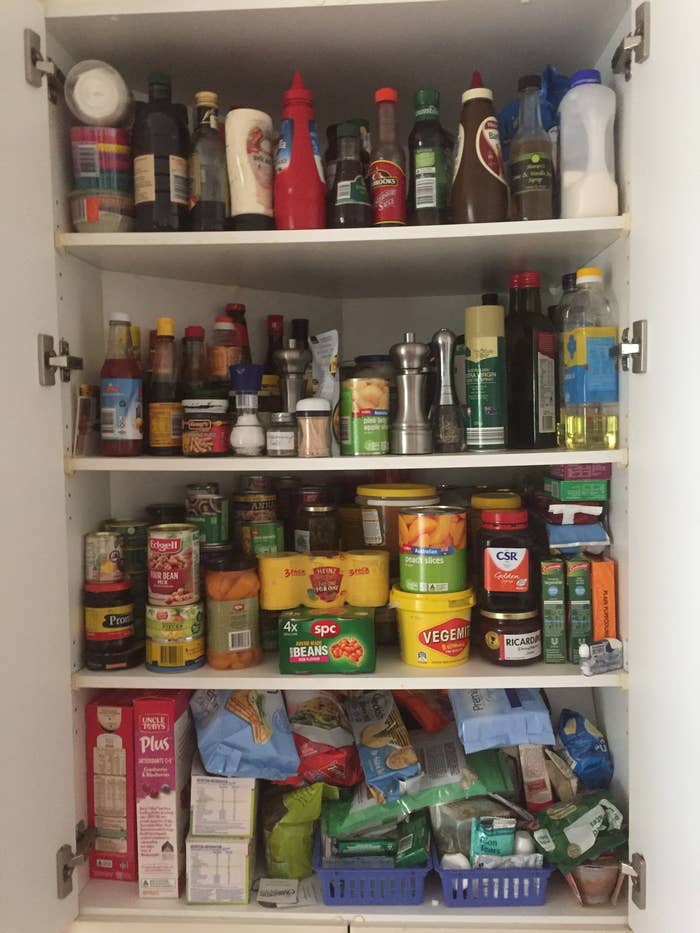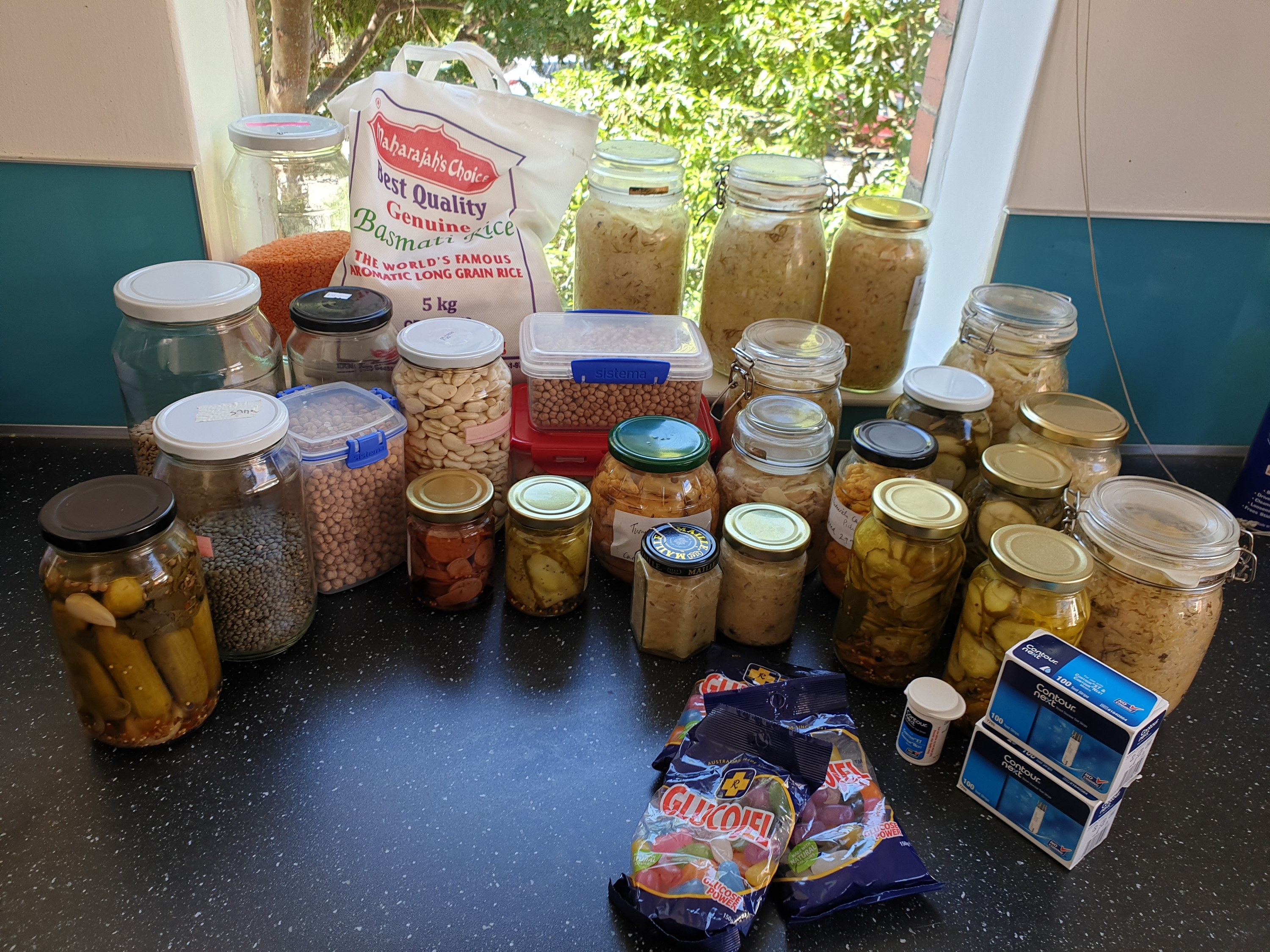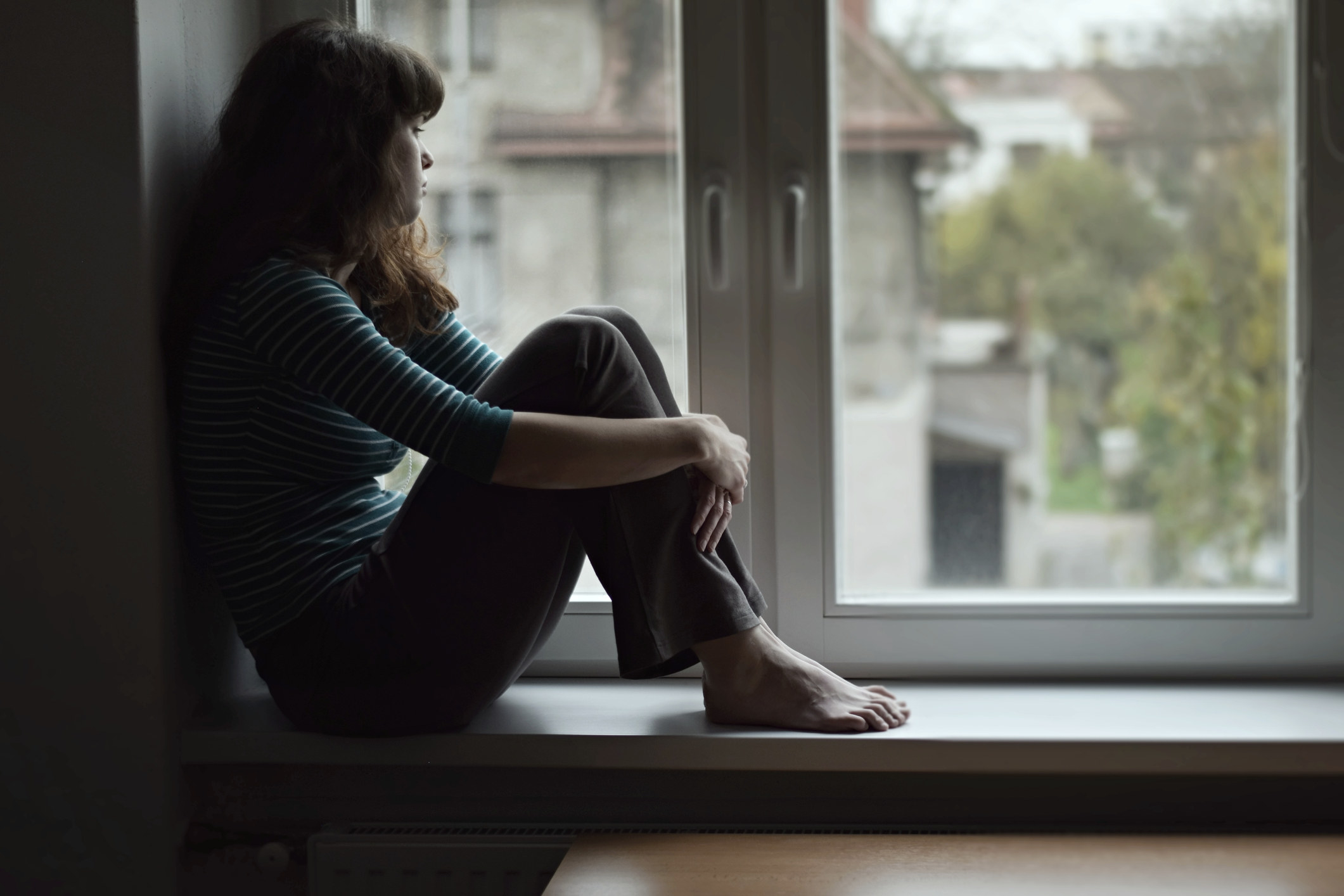
Ann Quadroy's doctor told her to self-quarantine almost two weeks ago as the drugs she takes to treat her psoriatic arthritis, metabolic syndrome and Type 2 diabetes compromise her immune system and make her more vulnerable to the new coronavirus.
The 63-year-old usually plays the card game bridge three times a week with friends but she has postponed the games indefinitely and is now playing online.
"I've decided this week I'm having a big binge on Netflix and watching everything I want to watch on Stan and SBS on Demand before everyone is on the [national broadband network]," she said. "And then I've got a stockpile of jigsaw puzzles."
Quadroy, who lives on the Mid North Coast of NSW, spent Tuesday morning contemplating how best to get some milk from the shops without exposing herself to too many people. Quadroy says she has stocked up on enough dry and canned goods — baked beans and tomato soup — to last her around three months if needed.

She has also filled all of her scripts.
"I can't be without the drugs and a few years ago they ran out of a few of the drugs, so I wasn't going to risk that," she said.
Quadroy says she is "gobsmacked" at what she says is "inaction and a lack of foresight" from the Australian government.
"This advertising campaign is like something some kindergarten kid did — it just tells you to wash your hands and we all bloody know that," she said. Quadroy wants an advertising campaign that will make people stay home and "scare the bejesus" out of them like the Grim Reaper TV ads in the 1980s which raised awareness about AIDs.

Melbourne woman Emily — who asked not to use her last name for privacy reasons — has been making pickles and sauerkraut.
"When the [new coronavirus] spread to Europe and there were indications it was going to be a global pandemic I started buying extra cabbages and getting the little gherkins in bulk," the 25-year-old told BuzzFeed News.
Emily is in an at-risk group with the coronavirus — she has Type 1 diabetes, an autoimmune disease that attacks cells in the pancreas that make insulin, the hormone that moves blood sugar (which rises after you eat) into cells to be used as energy.
"I live with my girlfriend and she has quite severe asthma so we’re both in the high-risk category and we’re both taking this pretty serious," she said.
A small study published in the Lancet involving 191 people who contracted the new coronavirus in Wuhan, China showed 48% of these patients had a comorbidity, with hypertension being the most common health complaint (30%), followed by diabetes (19%).
"You're more likely to get sick, more likely to have worse symptoms and complications from being sick because of your [compromised] immune system," she said.
Despite having more reason to employ social distancing or self-isolation, Emily is a full-time student and can't afford to give up her few shifts, many of which have now been cut, at a casual job. Emily worries people are being too flippant about potentially spreading the virus to elderly or immunocompromised people.
"I have conversations with customers who are saying 'everyone is being hysterical' and they're just trying to 'live life' and they're still going to the tennis club," she said. "Then they hand me their credit card to process a sale."

Emily needs to catch public transport and can only buy what she's able to walk home with so she's at the supermarket most days.
"I get what I can carry and afford," she said.
She might have preserved foods but as panic buyers empty supermarket and chemist shelves across Australia, Emily can't find two things she needs to help manage her diabetes: hand sanitiser nor a big packet of glucose jelly beans.
"I have little cuts on my fingers from testing my blood sugar levels in public and I don't have any hand sanitiser or alcohol wipes to clean my hands now before I do that," she said. "I would love to be using hand sanitiser but there is none available."
The jelly beans are useful for treating hypoglycaemia, when her blood sugar level gets too low, as they make it easy to calculate how much sugar she's consuming. Emily has 450 grams of jelly beans, which will last her a couple of weeks.
"I tried three chemists near me and their stocks of jelly beans were really low, you could only buy tiny little packets," she said. "The next person who comes along is going to have even less to choose from."

